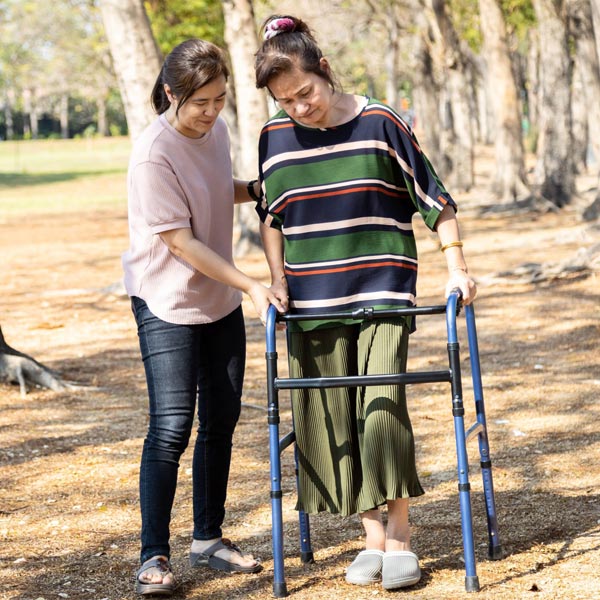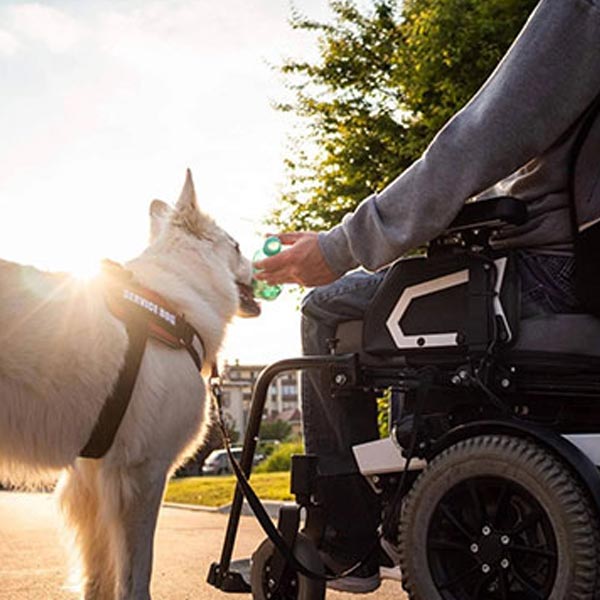Respite complex live-in care is a temporary care solution which provides full-time support for individuals, allowing their regular Personal Assistants (often family members) to take a break.
It offers an essential service for unpaid carers who need time to rest, recharge or attend to other responsibilities while ensuring their loved one receives the same high level of care during their absence. Respite care can last from a week to several months and is designed to be flexible and responsive to individual needs.
Even in a temporary arrangement, respite live-in care emphasises freedom, empowerment and choice for both the individual receiving care and their primary carer.
Freedom
- For the unpaid carer: respite care gives family carers the freedom to take time for themselves, whether for relaxation, travel or to address other personal or professional commitments, without feeling guilty or anxious about leaving their loved one
- For the individual: those receiving care or support benefit from the freedom of staying in their own home during the respite period. They don’t need to transition to a residential, nursing or care home – which can often be unsettling – and can maintain their routines and familiar surroundings
Empowerment
- For the individual receiving care: even though it’s temporary, respite care is about maintaining a person’s empowerment and autonomy. The individual remains in control of their care routines, preferences and daily choices, even when a different Personal Assistant steps in. This continuity of control helps ensure they feel respected and dignified throughout the respite period.
- The temporary Personal Assistant is often briefed in detail about the individual’s specific needs, habits and preferences, so the care provided continues to be as empowering and personalised as possible, ensuring they do not feel like their independence is disrupted
Choice
- For the Personal Assistant and the individual: respite care offers both the individual receiving care and their primary carer the choice of how and when care is provided. Families can decide the length of care, the type of services required (medical, personal or both), and even the unpaid carer’s involvement in daily routines
- The unpaid carer can choose to focus on areas where their loved one needs the most help, such as administering medications, helping with mobility or assisting with bathing and dressing. This flexibility allows the individual and their family to remain in control of the care process





